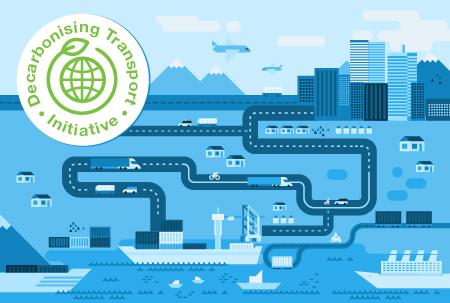How to Better Reflect Transport in Climate Action Efforts

The issue
Only 10% of the Nationally Determined Contributions include a transport CO2 reduction target
Transport is critical for climate change mitigation
Almost a quarter (23%) of energy-related CO2 stems from transport activity. With transport demand growing, it could reach a share of 40% in twenty years’ time. Decarbonising transport is difficult as it is still 92% dependent on oil. It is thus urgent to raise ambitions for reducing transport CO2. Creating business cases for transport decarbonisation will increase buy-in from the private sector, boosting both decarbonisation efforts and economic growth.
Transport policies are often excluded in climate change policy processes
Only 80% of the Nationally Determined Contributions (NDCs) under the Paris Agreement mention transport as relevant for CO2 mitigation, yet only 60% evoke transport-related measures. Not more than 10% of NDCs set a transport CO2 reduction target. The transport policy challenges in the context of climate change are complex. They require co-operation and collaboration among and within sectors, among countries across different levels of government and among public agencies. Transport ministers can play a critical role in advancing national climate goals within the Paris Agreement in ways that reflect the transport and climate challenge.
Key insights
A more holistic view of transport is emerging that looks beyond individual transport modes
Co-ordination within the transport sector has improved
The transport sector's awareness of the need to reverse the trend of growing CO2 emissions has grown since the 2015 Paris Agreement. Most transport stakeholders are strongly committed to the Agreement. A more holistic view of transport is emerging that looks beyond individual transport modes. Stakeholders are also making links between the Paris Agreement and the UN Sustainable Development Goals and are starting to develop solutions that serve both decarbonisation and other societal goals. Yet the overall impact on the multilateral policy process to limit climate change remains weak - as witnessed by the absence of specific measures and mitigation targets for transport in the NDCs.
Mechanisms exist to better link transport to climate policies
Since the Paris Agreement, the International Transport Forum (ITF) has organised a Ministers’ Roundtable at the ITF Annual Summit to provide a platform for ministers to review progress in decarbonising transport alongside industry and civil society leaders. This ITF Ministers' Roundtable currently constitutes the highest-level regular transport sector dialogue on transport and climate change. The findings from the 2018 Ministers’ Roundtable were submitted to the United Nations Framework Convention on Climate Change (UNFCCC) via the Talanoa Dialogue to better link transport priorities with the broader climate change policy process.
To Dos
More transport commitments and more specific measures need to be included in the Nationally Determined Contributions
Intensify collaboration to raise ambitions and spur strong action
The climate change policy process should align climate policy and transport priorities. The ongoing dialogue among transport ministers on decarbonising transport at the ITF Summit provides a platform to serve this purpose. Enhanced collaboration will increase awareness of effective measures for transport decarbonisation among the parties to the UNFCCC. Broader policy dialogues also provide the space to reflect on the efficacy of existing measures and facilitate the inclusion of new initiatives in the NDCs.
Include more transport policy measures in NDCs
It is not enough that 6 in 10 NDCs contain transport measures when the sector is the second-largest emitter. The NDCs must include more, and especially more specific, commitments. A number of policy priorities that could guide measures to be included in NDCs have emerged from the high-level dialogue of transport ministers at the ITF Summit: 1. harnessing technology and innovation; 2. electrifying road transport; 3. improving public transport; 4. enhancing financing options for sustainable transport and infrastructure; and, 5. promoting transit-oriented development and integrated transport and land use planning to reduce transport CO2 via behavioural change.
Further reading:
Transport and climate change: Moving forward from COP23
This report is part of the Decarbonising Transport initiative